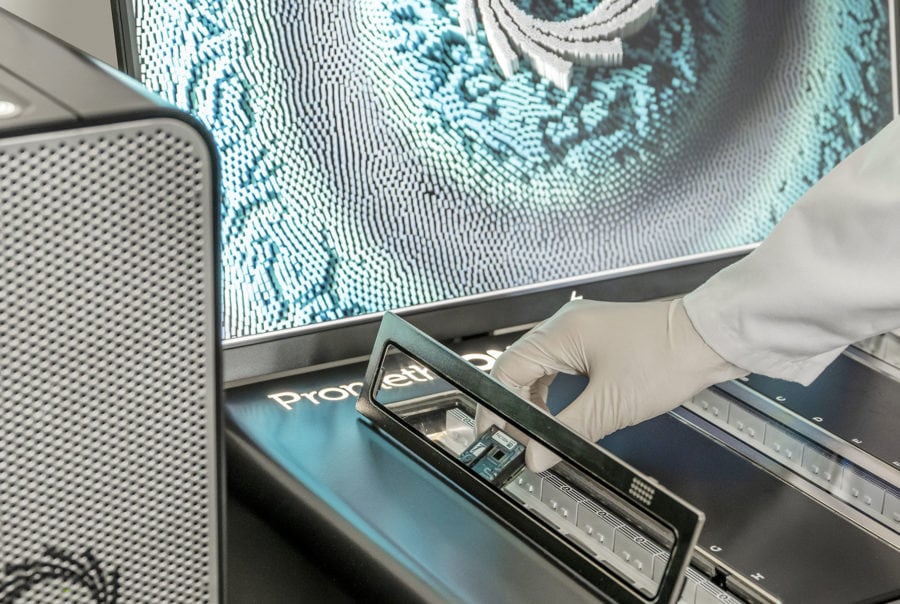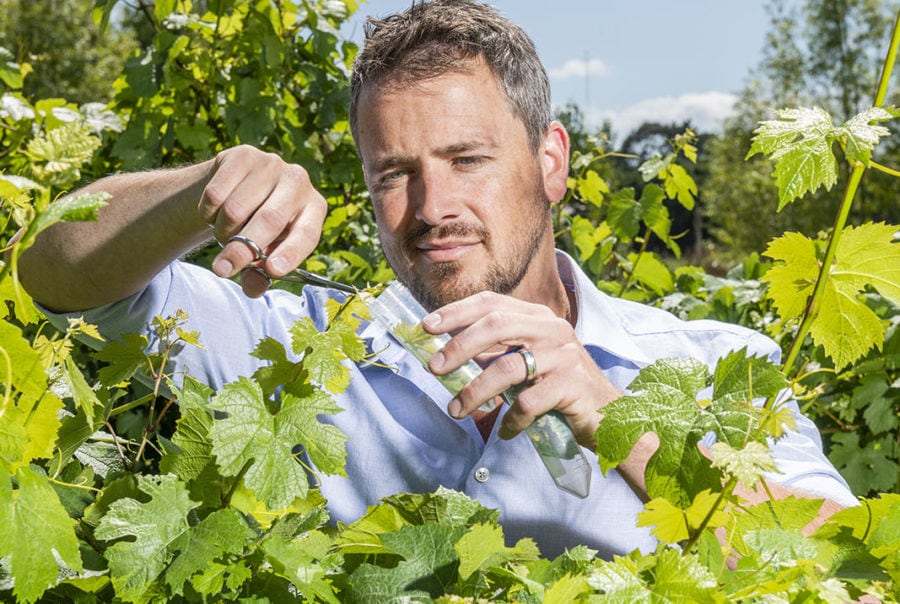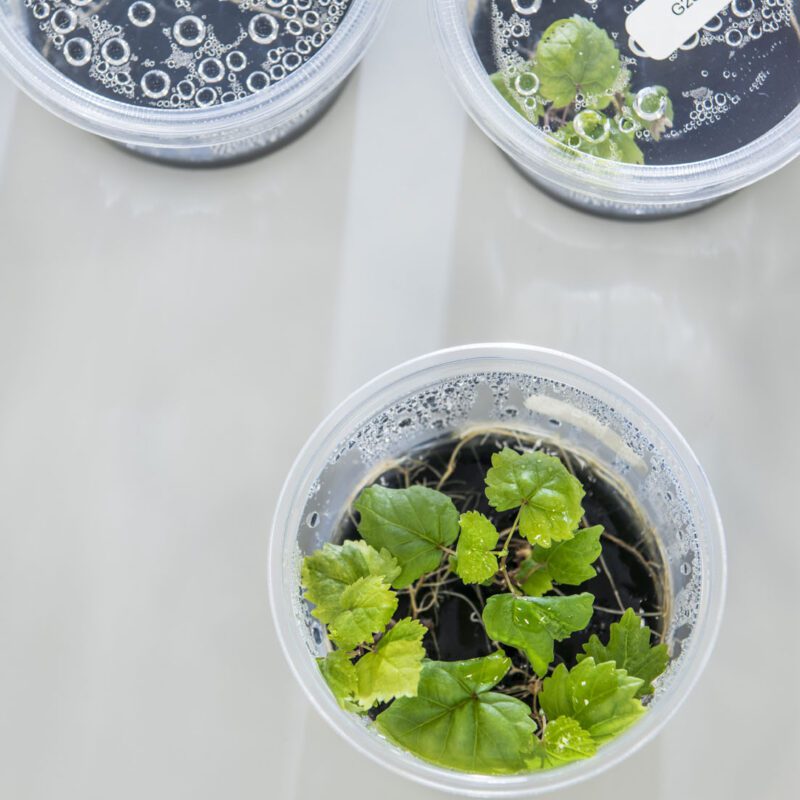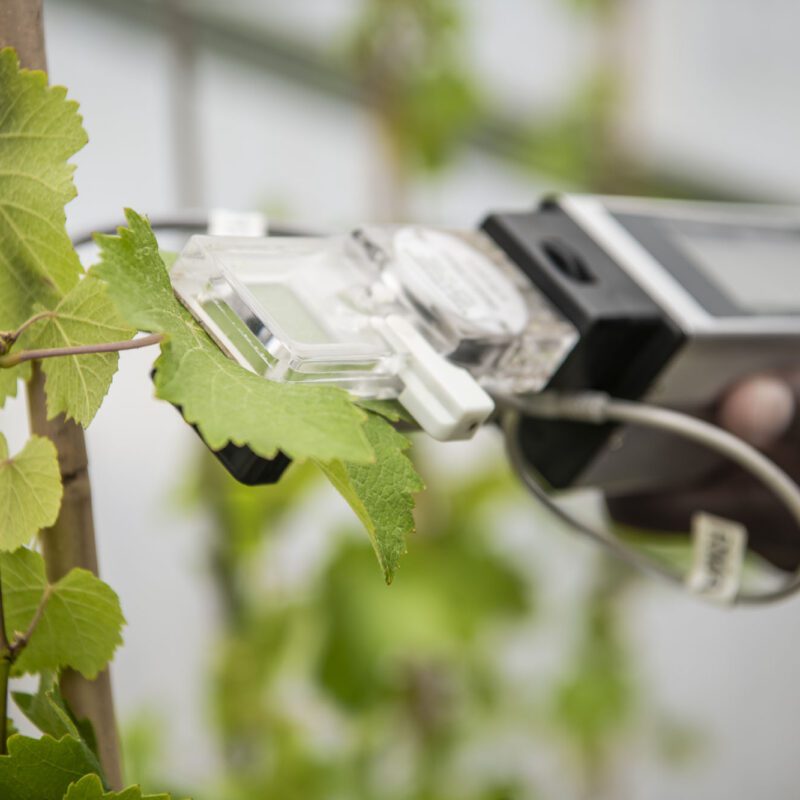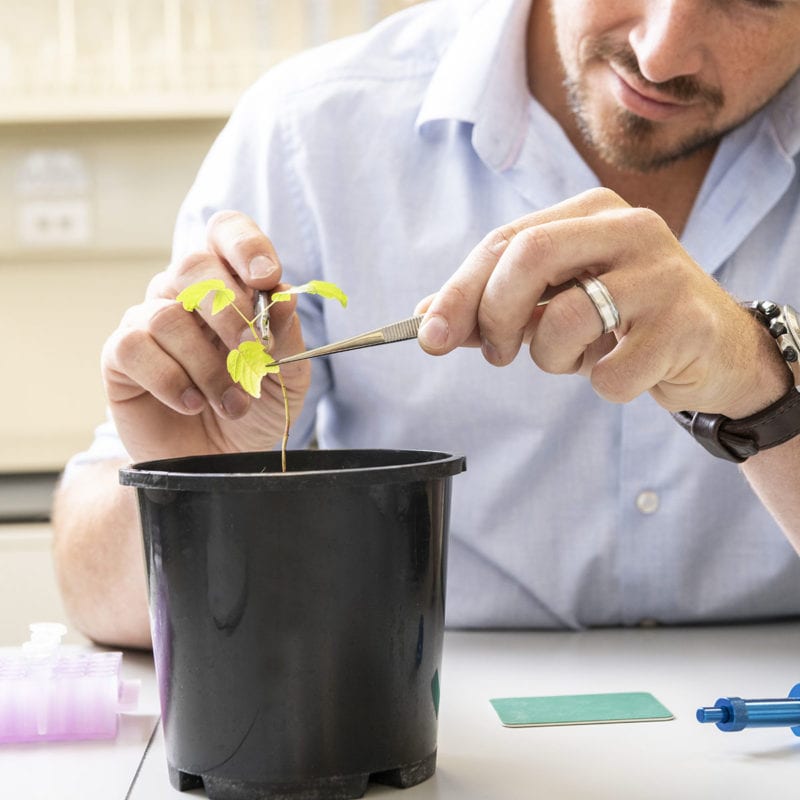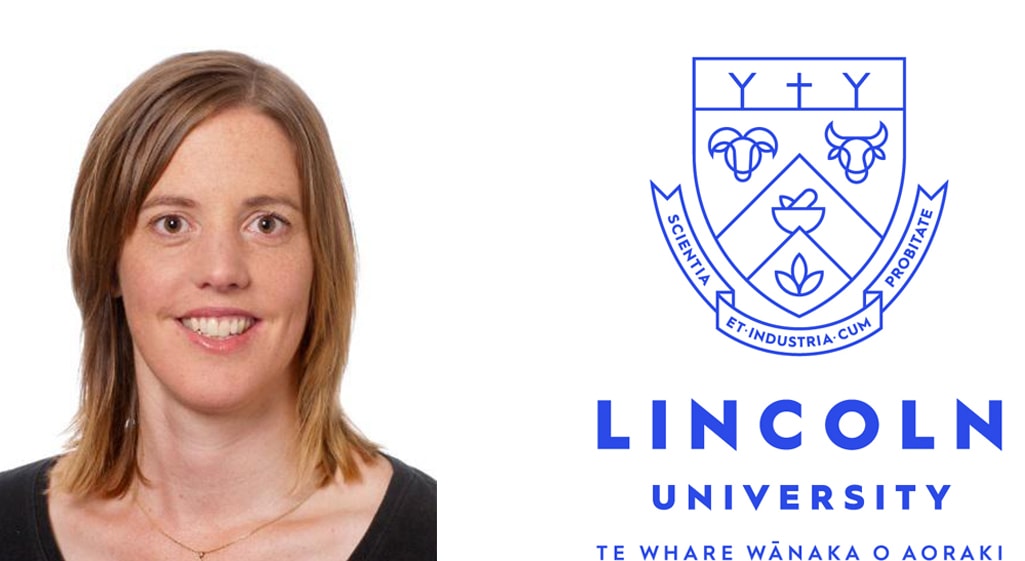The Bragato Research Institute Grapevine Improvement Laboratory is based at Lincoln University in Canterbury.
Led by Principal Scientist Dr Darrell Lizamore, the Grapevine Improvement team run BRI’s Sauvignon Blanc 2.0 programme, host the National Vine Collection and run several other grapevine projects and services. The Lincoln location allows BRI to collaborate with the university, other Crown Research Institutes and students.
The Laboratory has an Oxford Nanopore PromethION Sequencer installed to support research in grapevine improvement and other fields. This is the first high-throughput third-generation sequencer in New Zealand. The ‘PromethION’ sequencer rapidly generates long-read data that is critical for understanding genetic differences among grapevines.

Research
Sauvignon Blanc 2.0
In December 2021, BRI and its partners launched an accelerated 7-year research programme that will apply modern knowledge to produce and select a huge range of new diversity in Sauvignon Blanc. Our goal is to create 12,000 entirely new variants of New Zealand Sauvignon Blanc, and applying the latest genome sequencing technology, BRI will identify plants that exhibit the most useful traits within this large population.
To make our industry more resilient, the programme will select improvements in traits such as yield, resistance to fungal infection, frost tolerance and water use efficiency. The research programme will use vines’ natural response to stress to produce a population of 12,000 new variants of Sauvignon Blanc. Vines that either maintain the iconic Marlborough Sauvignon Blanc wine flavour and aroma or offer novel Sauvignon Blanc styles to expand market opportunities will be progressed.
National Vine Collection
BRI is investing in the care of the national vine collection at the Grapevine Improvement Laboratory. There is a project National Vine Collection clean-up project underway. The objective is to establish techniques for virus removal from vines in the low-health portion of the National Vine Collection and then, treat priority genotypes to establish virus-free material using tissue culture.
Tuned Vines
This is a two-year research programme to identify the epigenetic markers of environmental stress in grapevines, and to demonstrate the concept of using small RNA molecules to “tune” plant responses (using a technique that would not be considered GM). In addition to providing knowledge relevant to the later stages of the Sauvignon Blanc 2.0 programme, the aim of this project is to create a credible base of knowledge to be progressed with collaborators from mid-2023.


